Sunday Times 2
CHOGM: Our guests!
View(s):The Sunday Times last week carried profiles of four world leaders who are expected to be in Sri Lanka for the November Commonwealth summit, the biggest conference hosted by Sri Lanka since the Non-Aligned summit in 1976. This week, we carry nine more leader profiles from the African Continent where Commonwealth values such as fair elections, good governance, justice and the rule of law are under strain. These profiles are based on material obtained from the BBC, wikipedia and wire services.
Hage Geingob, Prime Minister of Namibia
Hage Geingob (born 3 August 1941) has been Prime Minister of Namibia since 2012. An academic and revolutionary, Geingob previously served as Prime Minister from 1990 to 2002; he was Namibia’s first Prime Minister following its independence from South Africa in 1990. Since 2007, he has been Vice-President of the South West Africa People’s Organization (SWAPO), Namibia’s ruling party, which fought for the country’s independence.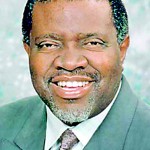
As the Presidency in Namibia is restricted to two terms, President Hifikepunye Pohamba is expected to step down in 2015, and Geingob, as SWAPO Vice-President, will take his place as SWAPO’s presidential candidate.
Hage Geingob received his Ph.D. from the University of Leeds. His thesis was entitled “State Formation in Namibia:Promoting Democracy and Good Governance”. In his thesis, he examined significant events in the process of state formation in Namibia and provided an insight into the role played by various actors involved in shaping the evolution of Namibia as a state. In 1972, Hage Geingob was appointed to the United Nations Secretariat as Political Affairs Officer, a position he held until 1975 when he was appointed Director of the United Nations Institute for Namibia.
In 1980, he was awarded the Palmes Academiques (Officer Class) by the French Government in recognition of valuable services in education.
Country facts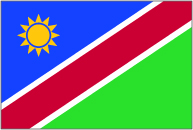

-Full name: The Republic of Namibia
-Population: 2.4 million (UN, 2012)
-Capital: Windhoek
-Area: 824,292 sq km (318,261 sq miles)
-Major languages: English (official), Afrikaans, German, Oshivambo, Herero, Nama
-Major religion: Christianity
-Life expectancy: 62 years (men), 63 years (women) (UN)
-Main exports: Diamonds, copper, gold, zinc, lead, uranium, livestock
-GNI per capita: US $4,700 (World Bank, 2011)
Armando Guebuza, President
of Mozambique
A millionaire businessman, Armando Guebuza – born on January 20, 1943 — came to power in 2005 from the ruling Frelimo party. He succeeded Mozambique’s long-time leader Joaquim Chissano.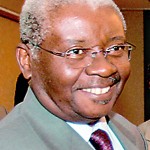
He won another term in office in the October 2009 elections with a landslide majority.
Frelimo, in power since it led the country to independence from Portugal in 1975, won 191 parliamentary seats out of 250 – enough to change the constitution at will.
Guebuza, seen as welcoming of greater foreign investment, beat his rivals, long-time leader of the opposition party Renamo, Afonso Dhlakama, and the head of a new party, Daviz Simango, 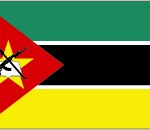 capturing 75.46% of the presidential vote.
capturing 75.46% of the presidential vote.
Guebuza is under pressure to provide poor Mozambicans with the benefits of tourism and untapped mineral and energy resources that have started to draw foreign investors, particularly from neighbouring South Africa.
And Guebuza, who made his fortune in the energy, transport and port industries, faces the new challenge of accommodating a new generation that was not born in the liberation struggle nor the 16-year civil war against Renamo.
He was a member of Frelimo’s armed wing and played a leading role in Mozambique’s struggle for independence. As a former interior minister in 1975 he ordered the expulsion of Portuguese citizens from the country.
His predecessor, Joaquim Chissano, became president in 1986 after the death of independent Mozambique’s first president, Samora Machel. Chissano oversaw a move away from Marxism and the introduction of a multi-party constitution.
Country facts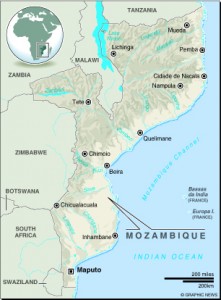
-Full name: The Republic of Mozambique
-Population: 24.5 million (via UN, 2012)
-Capital: Maputo
-Area: 812,379 sq km (313,661 sq miles)
-Major languages: Portuguese (official), Makua-Lomwe, Swahili, other indigenous languages
-Major religions: Christianity, indigenous beliefs, Islam
-Life expectancy: 50 years (men), 52 years (women) (UN)
-Main exports: Seafood, cotton
-GNI per capita: US $460 (World Bank, 2011)
Joyce Hilda Banda, President of Malawi
Joyce Hilda Banda has been receiving death threats since she dissolved the country’s Cabinet on October 10 after uncovering a high-level fraud scandal.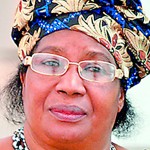
The graft scandal exposed top officials who are alleged to have swindled over US$3 million from state coffers.
Banda, the country’s first female president, came to power in April, 2012 after the sudden death of Bingu wa Mutharika.
She was born on April 12, 1950 and is the founder and leader of the People’s Party, created in 2011.
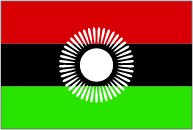 An educator and grassroots women’s rights activist, she was Minister of Foreign Affairs from 2006 to 2009 and Vice President from May 2009 to April 2012.
An educator and grassroots women’s rights activist, she was Minister of Foreign Affairs from 2006 to 2009 and Vice President from May 2009 to April 2012.
Before her active career in politics she was a successful businesswoman and founder of the Joyce Banda Foundation, the National Association of Business Women, Young Women Leaders Network and the Hunger Project.
She is no relative of dictator Hastings Banda.
She married Roy Kachale with whom she had three children. By age 25, she was living in Nairobi, Kenya. In 1975, a growing women’s movement in Kenya motivated Banda to take her three children and leave what she has described as an abusive marriage. Her marriage to Roy Kachele ended in 1981.
She is now married to Richard Banda, retired Chief Justice of the Republic of Malawi with whom she has two children.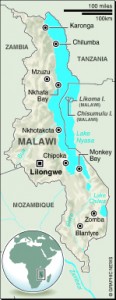
Forbes named President Banda as the most powerful woman in Africa.
Country facts
-Full name: The Republic of Malawi
-Population: 15.9 million (UN, 2012)
-Capital: Lilongwe
-Area: 118,484 sq km (45,747 sq miles)
-Major languages: English, Chichewa (both official)
-Major religions: Christianity, Islam
-Life expectancy: 55 years (men), 55 years (women) (UN)
-Main exports: Tobacco, tea, sugar, cotton
-GNI per capita: US $360 (World Bank, 2011)
Jacob Zuma, President of South Africa
Zuma was this week on a highway to a diplomatic crisis with Malawi. Responding to a question on charging fees on highways, Zuma told an interview, “This is Johannesburg. It’s not some national road in Malawi”.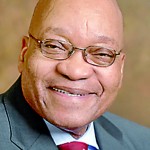
Zuma is no stranger to controversy. He was charged with rape in 2005, but was acquitted. In addition, he fought a long legal battle over allegations of racketeering and corruption, resulting from his financial advisor Schabir Shaik’s conviction for corruption and fraud. In April 2009, the National Prosecuting Authority decided to drop the charges, citing political interference.
The leader of the ANC, Jacob Zuma was officially chosen as the country’s president by the newly-elected parliament in May 2009.
Born on April 12, 1942 to a Zulu family in 1942, Zuma has spent his entire adult life since 1959 in the service of the ANC. He joined its armed wing Umkhonto we Sizwe in 1962 and was arrested the following year. He spent ten years in prison for conspiracy to overthrow the apartheid-era government.
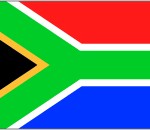 After his release he left South Africa and was a leading figure in the ANC abroad until he returned home in 1990 to take part in the talks that brought apartheid to an end.
After his release he left South Africa and was a leading figure in the ANC abroad until he returned home in 1990 to take part in the talks that brought apartheid to an end.
Zuma was prominent in promoting the ANC among Zulus who had voted for the Inkatha Freedom Party in the first free elections in 1994. In 1999, he became the deputy president of South Africa under President Thabo Mbeki.
Zuma looked set to become president of South Africa after the 2009 parliamentary elections, but 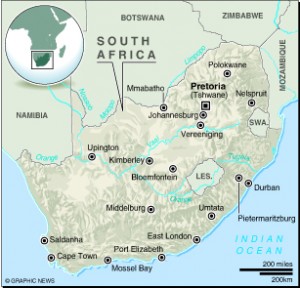 the corruption allegations persisted. It was not until April 2009 – weeks before the parliamentary polls – that state prosecutors finally threw out the charges on the grounds that there had been political interference.
the corruption allegations persisted. It was not until April 2009 – weeks before the parliamentary polls – that state prosecutors finally threw out the charges on the grounds that there had been political interference.
In December 2012 Mr Zuma was was re-elected as ANC leader with an overwhelming majority.
Country facts
-Full name: Republic of South Africa
-Population: 50.7 million (UN, 2012)
-Capitals: Pretoria (executive capital); Cape Town (legislative capital); Bloemfontein (judicial capital)
-Largest city: Johannesburg
-Area: 1.22 million sq km (470,693 sq miles)
-Major languages: 11 official languages including English, Afrikaans, Sesotho, Setswana, Xhosa and Zulu
-Major religion: Christianity, Islam, indigenous beliefs
-Life expectancy: 53 years (men), 54 years (women)
-Main exports: Gold, diamonds, metals and minerals, cars, machinery
-GNI per capita: US $6,960 (World Bank, 2011)
Navinchandra Ramgoolam, Prime Minister of Mauritius
Mauritius Prime Minister Navinchandra Ramgoolam was born in a Hindu family on July 14, 1947. He has been prime minister of his country since 2005; previously he was Prime Minister from 1995 to 2000. Being the leader of the Mauritian Labour Party, he has also been a Member of Parliament since 1991.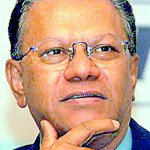
Navin Ramgoolam is a doctor and lawyer.
His predecessor Paul Berenger, a white Mauritian of French descent, became the island’s first non-Hindu prime minister in 2003. Mauritius, a volcanic island of lagoons and palm-fringed beaches in the Indian Ocean, has a reputation for stability and racial harmony among its mixed population of Asians, Europeans and Africans. Mauritius claims sovereignty over the Chagos islands, which lie around 1,000 km to the north-east. The British territory, which was separated from Mauritius in 1965, is home to the US military base on Diego Garcia. The British government oversaw the forced removal of the Chagos islanders to Mauritius to make way for the base.
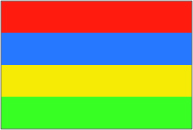 Navin Ramgoolam is the son of former Prime Minister and Father of the Mauritian Nation Seewoosagur Ramgoolam and Lady Sushil Ramgoolam. He is married to Veena Ramgoolam.
Navin Ramgoolam is the son of former Prime Minister and Father of the Mauritian Nation Seewoosagur Ramgoolam and Lady Sushil Ramgoolam. He is married to Veena Ramgoolam.
He is also known to have very intimate ties with Nandanee Soornack and they have a daughter born in 2009
The ruling coalition shrank in August 2011 when the Militant Socialist Movement (MSM)  leader Pravind Jugnauth said his party was now in opposition. Six ministers from the party had quit in protest against the arrest of the health minister by an anti-corruption watchdog.
leader Pravind Jugnauth said his party was now in opposition. Six ministers from the party had quit in protest against the arrest of the health minister by an anti-corruption watchdog.
Country facts
-Full name: The Republic of Mauritius
-Population: 1.3 million (UN, 2012)
-Capital and largest city: Port Louis
-Area: 2,040 sq km (788 sq miles)
-Major languages: English (official), Creole, French, Indian languages
-Major religions: Hinduism, Christianity, Islam
-Life expectancy: 70 years (men), 77 years (women) (UN)
-Main exports: Sugar, clothing, tea, jewellery
-GNI per capita: US $8,040 (World Bank, 2011)
Ernest Bai Koroma, President of Sierra Leone
Ernest Bai Koroma – born on October 2, 1953– was sworn in as Sierra Leone’s new president on 17 September 2007.
Koroma promised zero tolerance on corruption in his inaugural speech. He also said he’d fight against the mismanagement of 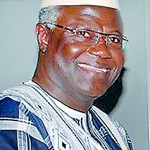 state resources.
state resources.
Addressing thousands of cheering supporters, Koroma said: “We know how high your expectations are and that you have suffered for too long.”
Koroma’s All People’s Congress (APC) also won a majority in parliamentary elections held in August 2007.
An insurance broker, before he entered politics, he says he wants to run Sierra Leone like a business concern.
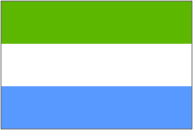 Koroma was born of Christian parentage in the predominantly Muslim north and a devout Christian himself. Koroma attended the Sierra Leone Church Primary School in Makeni, and then proceeded to the Magburaka Government Secondary School for Boys in Magburaka, Tonkolili District, (about 25 miles from his hometown of Makeni) where he graduated in 1973.
Koroma was born of Christian parentage in the predominantly Muslim north and a devout Christian himself. Koroma attended the Sierra Leone Church Primary School in Makeni, and then proceeded to the Magburaka Government Secondary School for Boys in Magburaka, Tonkolili District, (about 25 miles from his hometown of Makeni) where he graduated in 1973.
Upon graduation from secondary school, Koroma moved to the capital Freetown to attend the Fourah Bay College. He graduated from the Fourah Bay College in 1976 with a degree in Business Management.
Soon After graduating from the Fourah Bay College, Koroma was employed as a teacher at the St. Francis Secondary School 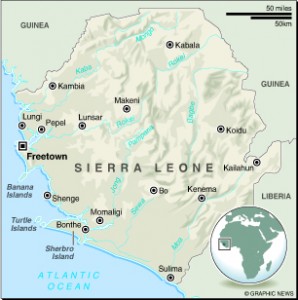 in his hometown of Makeni from 1976 to 1978.
in his hometown of Makeni from 1976 to 1978.
Country facts
-Full name: Republic of Sierra Leone
-Population: 5.8 million (UN, 2010)
-Capital: Freetown
-Area: 71,740 sq km (27,699 sq miles)
-Major languages: English, Krio (Creole language derived from English) and a range of African languages
-Major religions: Islam, Christianity
-Life expectancy: 48 years (men), 50 years (women) (UN)
-Main exports: Diamonds, rutile, cocoa, coffee, fish
-GNI per capita: US $340 (World Bank, 2009)
James Michel James, President of Seychelles
Michel succeeded France Albert Rene, who led the country for almost three decades before stepping down in April 2004. 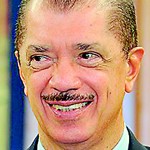
In July 2006 Michel – born on August 16, 1944 — won a five-year term in presidential elections, and a new term in polls in May 2011.
A former vice president, he had served alongside Mr Rene since 1977, when a bloodless coup brought the long-term leader to power.
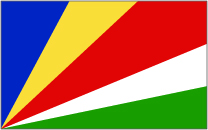
Michel pledged to hold a more open dialogue and to involve the private sector in the debt-ridden national economy. Some analysts have praised him for executing long-needed but painful reforms to liberalise the economy. Michel, a former teacher, entered politics in 1974. He had a 16-year military career and retired from the armed forces in 1993 with the rank of colonel.
The president is the head of state and appoints the Council of Ministers — an advisory 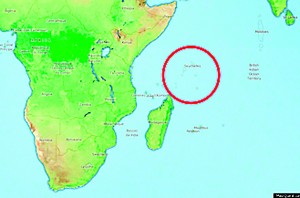 body. Most members of the legislative body, the national assembly, are directly elected. Michel also holds the defence, police, information, and risk and disaster management portfolios.
body. Most members of the legislative body, the national assembly, are directly elected. Michel also holds the defence, police, information, and risk and disaster management portfolios.
Country facts
-Full name: The Republic of Seychelles
-Population: 87,400 (UN, 2011)
-Capital: Victoria
-Area: 455 sq km (176 sq miles)
-Major languages: English, French, Creole
-Major religion: Christianity
-Life expectancy: 68 years (men), 78 years (women) (UN)
-Main exports: Fish, cinnamon bark, copra, petroleum products (re-exports)
-GNI per capita: US $11,270 (World Bank, 2011)
Goodluck Jonathan,President of Nigeria
Goodluck Ebele Azikiwe Jonathan served as Deputy Governor of Bayelsa State, Governor of Bayelsa State and Vice-President 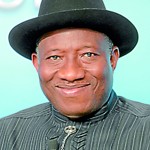 of Nigeria, before becoming the president in May 2011 after the death of his predecessor.
of Nigeria, before becoming the president in May 2011 after the death of his predecessor.
Jonathan is a member of the ruling People’s Democratic Party (PDP).
Jonathan was born to a family of canoe makers on November 20, 1957. He holds a BS degree in Zoology, an MSc degree in Hydrobiology and Fisheries biology, and a PhD degree in Zoology. Before he entered politics in 1998, he worked as an education inspector, lecturer and  environmental-protection officer. Jonathan and his wife Patience have two children. He is a Christian. In 2007, Jonathan declared his assets worth a total of US$ 8,569,662.
environmental-protection officer. Jonathan and his wife Patience have two children. He is a Christian. In 2007, Jonathan declared his assets worth a total of US$ 8,569,662.
Besides fighting corruption, the increasing militancy of the Islamist group Boko Haram has also proved to be a major headache for the president. Jonathan has vowed that the government would do all in its power to bring the perpetrators to justice.
Despite this, in 2012 more than 600 people were killed in attacks blamed on Boko Haram, and Jonathan declared a state of emergency in three northern states and deployed a large number of troops in May 2013.
Country facts
-Full name: The Federal Republic of Nigeria
-Population: 166.6 million (UN, 2012)
-Capital: Abuja
-Largest city: Lagos
-Area: 923,768 sq km (356,669 sq miles)
-Major languages: English (official), Yoruba, Ibo, Hausa
-Major religions: Islam, Christianity, indigenous beliefs
-Life expectancy: 52 years (men), 53 years (women) (UN)
-Main exports: Petroleum, petroleum products, cocoa, rubber
-GNI per capita: US $1,280 (World Bank, 2011)
Paul Kagame, President of Rwanda
Paul Kagame has been in control of Rwanda since his rebel army ended the slaughter of hundreds of thousands of people in 1994.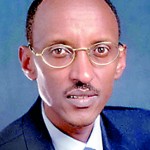
He was sworn in as vice-president and defence minister in the new, post-genocide government in July 1994, but he was widely seen as the real power in Rwanda.
In 2000 parliament elected him as president. He won presidential elections in 2003 and again in 2010.
To his admirers he is an economic visionary and to his critics he is a despot who tolerates no opposition.
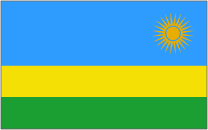 He has been praised by economists for striving to turn a land of subsistence farmers into a middle-income country by 2020. Rwanda was named the world’s top reformer in the World Bank’s Doing Business Report 2010.
He has been praised by economists for striving to turn a land of subsistence farmers into a middle-income country by 2020. Rwanda was named the world’s top reformer in the World Bank’s Doing Business Report 2010.
At home Kagame has been criticised for trampling on freedoms. He has enjoyed a free hand in Rwanda, building up the army to assert his authority and using anti-genocide legislation to clamp down on opponents.
The run-up to the 2010 presidential elections was marred by a gruesome murder of a senior member of an opposition party, an attack on his former army chief and the slaying of a critical journalist.
Kagame, born in 1957, left the country as a young child when around half a million fellow Tutsis fled following a bloody Hutu-led revolution that sparked ethnic violence.
His family settled in Uganda, and Kagame later helped Ugandan President Yoweri Museveni come to power.
From 1990 he led the military arm of the Rwandan Patriotic Army (RPF) in its war against Rwanda’s Hutu-controlled government.
His rebel force ended the 1994 genocide, in which Hutu death squads killed some 800,000 Tutsis and moderate Hutus. The RPF seized control of Rwanda after driving the 40,000-strong Hutu army and more than 2 million civilian Hutus into exile in  neighbouring countries.
neighbouring countries.
Rwanda’s subsequent involvement in the DR Congo is controversial, with the UN and rights groups accusing the country of backing rebel group in its neighbourhood. Rwanda rejects the accusation.
Country facts
-Full name: Republic of Rwanda
-Population: 11.2 million (UN, 2012)
-Capital: Kigali
-Area: 26,338 sq km (10,169 sq miles)
-Major languages: Kinyarwanda (official), French (official), English (official), Swahili
-Major religions: Christianity, indigenous beliefs
-Life expectancy: 54 years (men), 57 years (women) (UN)
-Main exports: Coffee, tea, hides, tin ore
-GNI per capita: US $570 (World Bank, 2011)
comments powered by Disqus

